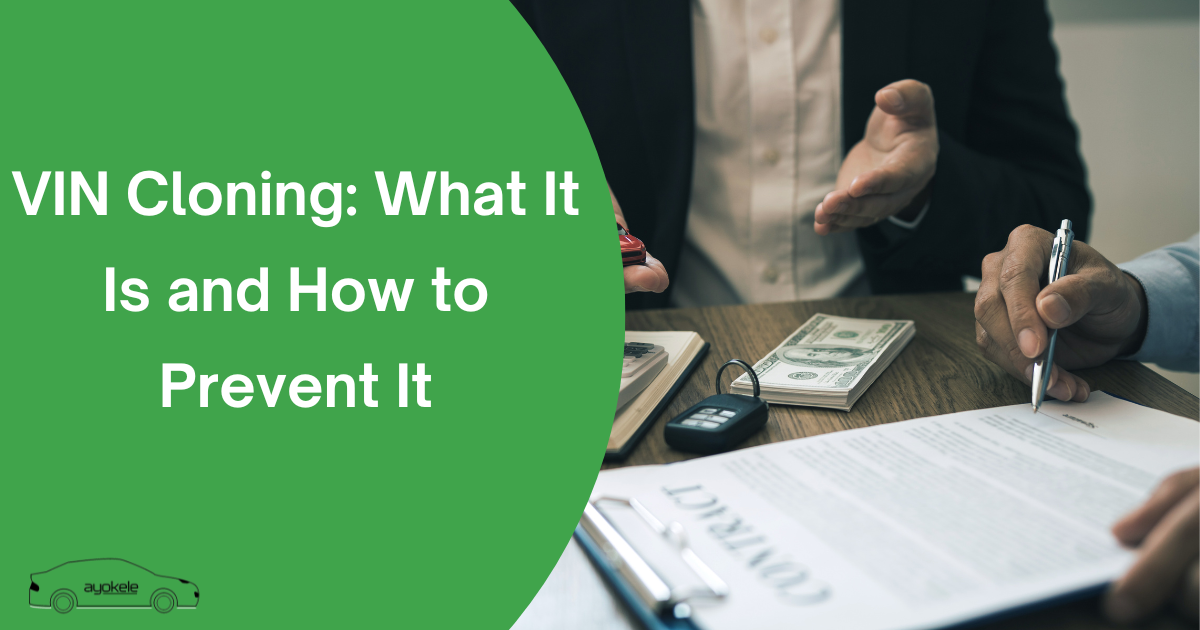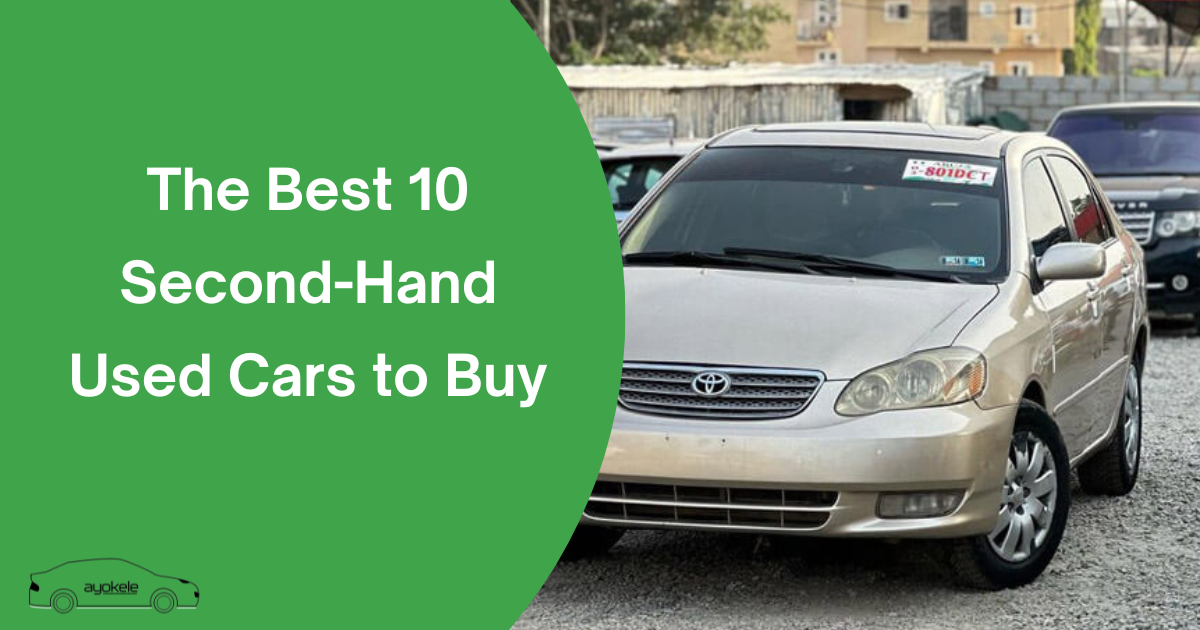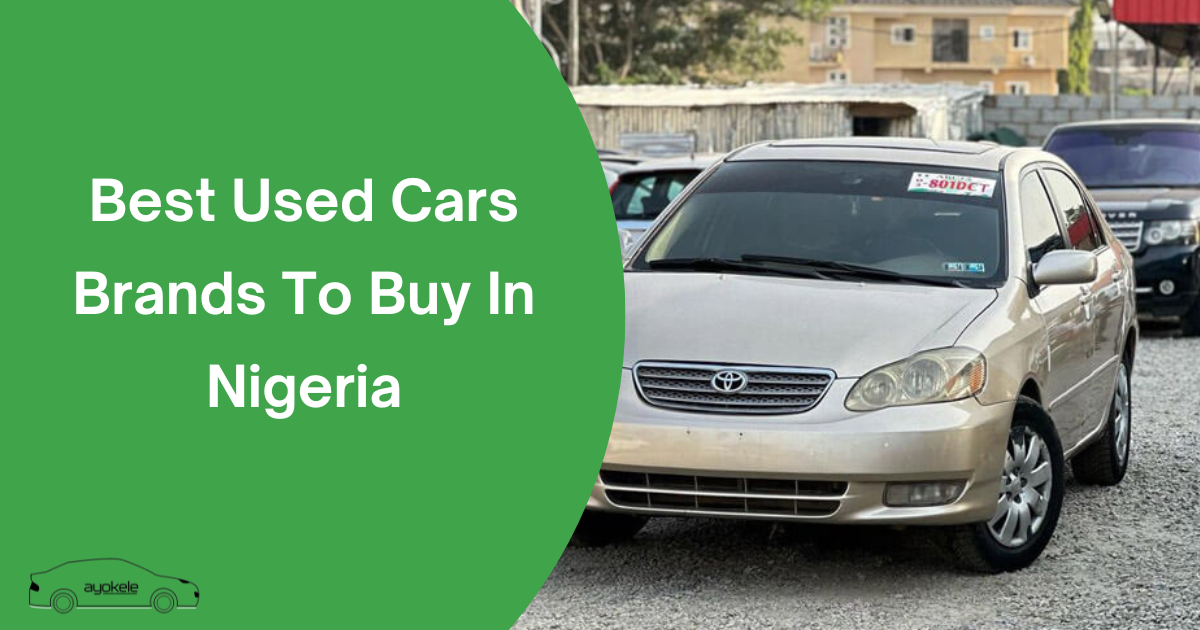Vehicle Identification Number (VIN) cloning is a sophisticated form of fraud that has become increasingly popular in Nigeria’s used car market. This deceptive practice involves criminals duplicating legitimate VINs from legally registered vehicles and applying them to stolen or salvaged cars, effectively creating automotive “twins” that can fool even careful buyers. Understanding this scheme and knowing how to protect yourself is essential for anyone considering a used vehicle purchase.
Understanding Vehicle Identification Numbers (VINs)
A Vehicle Identification Number is a unique 17-character code assigned to every modern vehicle manufactured since 1981. This alphanumeric identifier serves as a car’s fingerprint, containing coded information about the manufacturer, vehicle type, model, production plant, and sequential production number. In Nigeria, as globally, VINs are critical for vehicle registration, insurance, service records, and verifying a vehicle’s legal status.
VINs are typically located in several places on a vehicle, with the most visible being on the dashboard near the windshield on the driver’s side, on the driver’s side door jamb, under the hood on the engine block, and sometimes on the frame near the spare tire mount. These multiple locations serve as a security feature, making it more difficult for criminals to alter all instances of the number.
How VIN Cloning Works
The process of VIN cloning typically begins when criminals identify a target vehicle to steal, often focusing on popular models with high resale value such as Toyota Camry, Honda Accord, or various SUV models common on Nigerian roads. After stealing the vehicle, they need to disguise its identity.
Rather than creating a fictional VIN (which would be easily detected during registration checks), criminals locate a legally registered vehicle of the same make, model, color, and year—often in a different state or region. They then copy that vehicle’s VIN, creating counterfeit VIN plates and stickers that are installed on the stolen vehicle.
The fraud extends beyond physical alterations. Criminals also create forged documentation including registration papers, customs clearance documents for imported vehicles, and sometimes even service records. With digital manipulation tools becoming more sophisticated, these forgeries can appear remarkably authentic to the untrained eye.
In Nigeria, cloned vehicles often enter the market through seemingly legitimate channels—private sellers, small dealerships, or through online marketplaces. The fraudsters typically create convincing backstories about why they’re selling the vehicle, often claiming relocation, financial hardship, or other circumstances necessitating a quick sale.
Red Flags That May Indicate a Cloned VIN
Several warning signs might suggest a vehicle has a cloned VIN:
- VIN plates that appear newer than the vehicle itself or show signs of tampering such as non-factory screws, misaligned digits, or unusual adhesive residue
- Inconsistencies between VINs in different locations on the vehicle
- Documentation with unusual formatting, paper quality, or printing characteristics
- Missing or incomplete vehicle history
- A selling price significantly below market value for the vehicle’s apparent condition
- Sellers who resist providing additional documentation or are unwilling to meet at vehicle licensing offices
- Pressure to complete the transaction quickly and in cash
- Vehicle condition that doesn’t match the purported history (excessive wear for low mileage or vice versa)
- Recent paint work that might be concealing previous branding or identification
How to Verify a Vehicle’s VIN
Thorough verification is your best defense against VIN cloning:
Conduct a comprehensive physical inspection of all VIN locations. Use your smartphone to photograph each VIN plate and compare them carefully for consistency. Pay particular attention to font consistency, spacing, and alignment of characters.
Verify documentation authenticity by cross-referencing with official records. In Nigeria, the Motor Vehicle Administration Agency (MVAA) or relevant state vehicle registration authorities can confirm whether the VIN matches their records for the make, model, and year.
For imported vehicles, verify customs documentation through the Nigeria Customs Service. Legitimate imports will have proper documentation showing duty payment and legal importation.
Use online VIN check services that can reveal whether the same VIN is registered in multiple locations simultaneously—a clear indicator of cloning. While international services like Carfax aren’t fully applicable to Nigeria, local alternatives are emerging.
Consider engaging a professional vehicle inspector or mechanic familiar with VIN verification. These experts can identify signs of tampering that might escape notice during a casual inspection.
Preventative Measures When Buying Used Cars
To protect yourself from purchasing a cloned vehicle:
- Always insist on seeing the original vehicle documents, not photocopies. These should include the original registration, proof of ownership, and for imported vehicles, customs clearance documentation.
- Meet at official premises such as the vehicle licensing office to complete the transaction, where ownership records can be immediately verified.
- Use traceable payment methods rather than cash, creating a documented trail of the transaction.
- Conduct the transaction during business hours when verification services are available.
- Consider purchasing from established dealerships with physical locations and verifiable business histories, even if prices are somewhat higher than private sales.
- Request a comprehensive mechanical inspection from a trusted, independent mechanic who can check for signs of previous accidents, repairs, or identity tampering.
- Verify the seller’s identity through multiple forms of identification and confirm their connection to the vehicle through documentation.
Legal Implications of VIN Cloning in Nigeria
The legal consequences of VIN cloning are severe in Nigeria. Under various statutes including the Criminal Code and specific vehicle registration regulations, altering vehicle identification numbers or knowingly selling vehicles with falsified identities carries significant penalties including imprisonment.
For unwitting buyers of cloned vehicles, the situation is particularly troubling. When authorities discover a cloned vehicle, it is typically confiscated regardless of whether the current owner purchased it in good faith. The original owner of the stolen vehicle generally has legal right to recovery, leaving the buyer with significant financial loss.
Insurance companies typically void coverage for vehicles discovered to have cloned VINs, creating additional financial exposure for owners. Furthermore, driving a vehicle later discovered to be stolen could potentially implicate the driver in the original theft, creating legal complications even when the driver purchased the vehicle innocently.
What to Do If You Suspect You’ve Purchased a Cloned Vehicle
If you discover evidence suggesting your vehicle may have a cloned VIN:
- Document everything immediately. Photograph all VIN locations, gather all paperwork related to the purchase, and record any communication with the seller.
- Report your concerns to the nearest police station, filing a formal report with all available evidence.
- Contact the Motor Vehicle Administration Agency or relevant state vehicle registration authority to report the suspected fraud and determine the vehicle’s actual status.
- Consult with a legal professional specializing in vehicle fraud cases to understand your options for potential recovery or compensation.
- Do not attempt to sell the vehicle, as this could potentially make you complicit in fraud, even if you disclose your suspicions to a new buyer.
- Notify your insurance company of your concerns, though be aware this will likely result in coverage complications.




